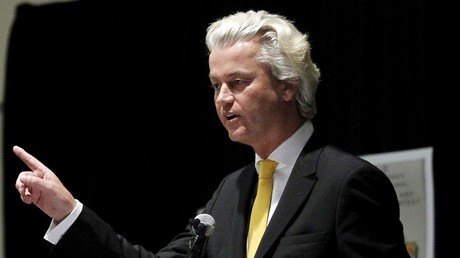However, if one of you has seen a similar critical article about the Dutch government's record in European policymaking, please let me know (j.j.teunissen@planet.nl).
Here is the French account of Hollande's European policy, published by Sauvons l'Europe.

L’Europe : un point noir du bilan de Hollande
François Hollande a peu fait pour infléchir la politique de l’Union européenne
L’Europe fait partie des points faibles du bilan de François
Hollande. En 2012, celui-ci avait commencé par la ratification du traité
sur la stabilité, la coordination et la gouvernance (TSCG), un texte
voulu par Angela Merkel pour renforcer et pérenniser l’austérité
budgétaire en Europe. Durant sa campagne électorale, le futur président
avait pourtant promis de renégocier ce traité. Finalement, il n’en fut
rien.En échange de ce renoncement, l’Union était censée investir 120 milliards d’euros supplémentaires pour relancer l’activité, mais cet argent est resté largement fictif. Au contraire, le nouveau président fit le choix, dès 2013, de chercher à revenir sous la barre des 3 % du PIB de déficit public. Un choix funeste car il freina l’activité, empêchant au final à la fois de réduire les déficits et d’inverser la courbe du chômage, tout en entraînant l’explosion du débat sur le « matraquage fiscal ».
François Hollande a certes joué un rôle important par la suite pour empêcher que la Grèce soit éjectée de la zone euro lors de la crise de l’été 2015, mais il n’avait pas réellement tenté auparavant d’engager une médiation entre le gouvernement Tsipras et les instances européennes pour éviter d’en arriver à cette crise ouverte.
La France a aussi laissé l’Allemagne en première ligne sur la question des réfugiés syriens, sans prendre sa part du fardeau, en refusant d’en recevoir un nombre significatif sur son territoire. Elle n’a pas mis non plus réellement son poids dans la balance pour aboutir à une solution européenne coordonnée. Manuel Valls s’est au contraire désolidarisé bruyamment de nos partenaires allemands à Munich en février 2016. Quant au projet de taxe européenne sur les transactions financières (TTF), théoriquement porté en particulier par la France, le gouvernement a en réalité cherché constamment à le vider de sa substance sur l’insistance du lobby bancaire hexagonal.
Pas de propositions pour l’avenir
Mais ce qui a surtout péché dans le quinquennat en la matière, c’est
ce qui n’a pas été fait : Paris s’est fait remarquer par sa discrétion
remarquable sur les grands dossiers européens de l’avenir. La France n’a
fait aucune proposition significative à ses partenaires pour régler la
question des dettes, relancer l’activité économique en Europe, accélérer
la transition énergétique, lutter davantage contre le dumping fiscal ou
encore réorienter la construction européenne dans un sens plus social,
comme on aurait pu (ou plutôt dû) s’y attendre de la part d’un disciple
de Jacques Delors.Guillaume Duval
Alternatives Economiques n°364 – 01/2017








